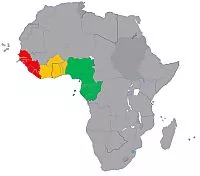Who
President Muhammadu Buhari; Justice Sylvester Ngwuta, Supreme Court judge; two High Court judges Adeniyi Ademola and Rita Ofilli-Ajumogbia; National Judicial Council (NJC); Department of State Security (DSS); Sambo Dasuki, former National Security Adviser.
What, When & Why
President Muhammadu Buhari rolled out an energetic anti-graft drive
upon taking charge in May 2015. Over a dozen politicians, mostly
allies of the former president Goodluck Jonathan, have since been
detained for alleged corruption. However, no major corruption case
has been closed since then.
The presidency believes the judiciary is undermined by corrupt
elements allowing defence lawyers to get away with delay tactics.
Hence, the ongoing crackdown on the judiciary. The suddenness of
Buhari's current initiative and concerns about its legality
present risks of their own.
- Supreme Court judge Sylvester Ngwuta was arraigned in court on 21st November under a 15-count charge including money laundering and illegal possession of passports. He pleaded not guilty to all of them and was granted bail.
- This comes against an unflattering backdrop of emerging judicial scandals in Nigeria of late: two top judges Adeniyi Ademola and Rita Ofilli-Ajumogbia are presently facing trial for allegedly receiving bribes.
- The secret service DSS arrested Ademola, Ngwuta and five other judges in September in simultaneous raids.
- At first the National Judicial Council (NJC), the highest judiciary body, condemned the raids, but has since announced suspension of the accused pending the outcome of their trial.
The legality of these actions have been questioned by some. E.g.
that in authorising the raids in September, the government bypassed
the NJC in a way that negates the principle of separation of
powers.
Outlook
The cases against the judges will likely drag on given the
typically protracted court process. For instance, former National
Security Adviser Sambo Dasuki has been held for over a year and the
case is effectively now in limbo. In October, it was even reported
that the President Buhari might order his release soon.1
Federal prosecutors seem to be struggling to prove the corruption
charges against their suspects. The judges being docked presently
will likely be no exception.
The judges' trial will probably also set back other corruption
cases going on. For instance, Justice Ademola was in charge of
Dasuki's case but he has withdrawn to face his own charges.
After an initial resistance, the NJC seemed to cave in to forestall a face-off with the presidency, but the ensuing crisis has apparently strained the relationship between the Buhari government and the judicial body. In November, President Buhari broke with convention by appointing an acting Chief Justice to succeed the retiring one instead of nominating a candidate substantively for Senate approval. The apparent strain in relationship poses a risk to government efficiency and dampens Nigeria's legal outlook—a difficult price for the government's crackdown.
Footnote
1. http://www.vanguardngr.com/2016/10/2-1bn-arms-scam-buhari-may-release-dasuki-detention-soon/
The content of this article is intended to provide a general guide to the subject matter. Specialist advice should be sought about your specific circumstances.


